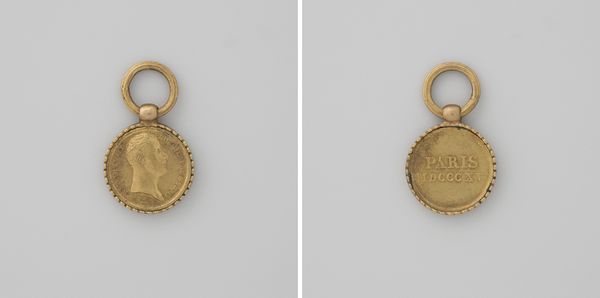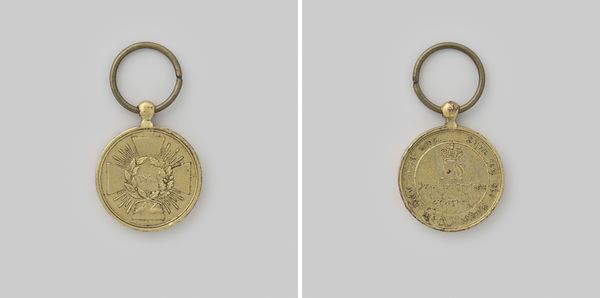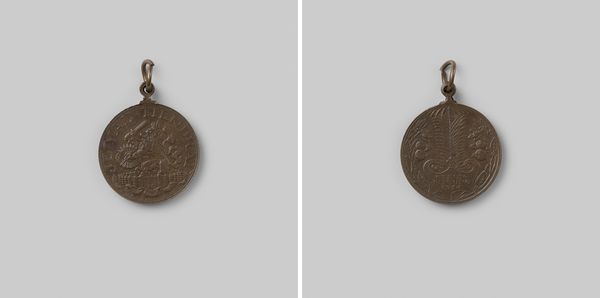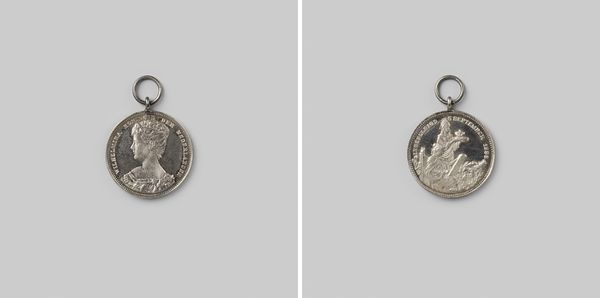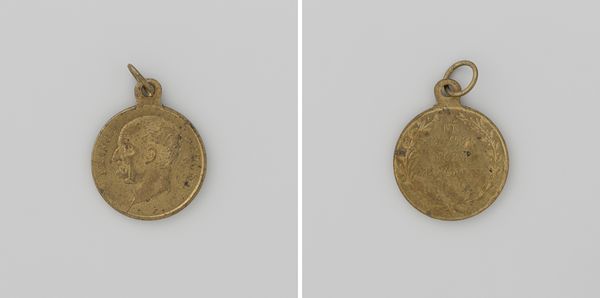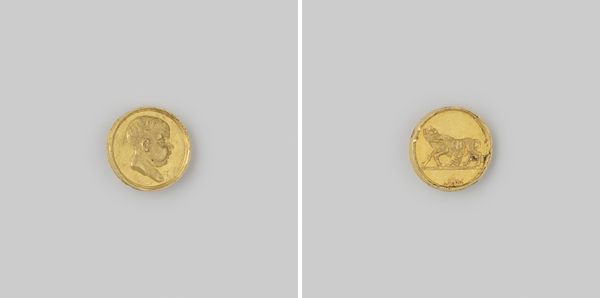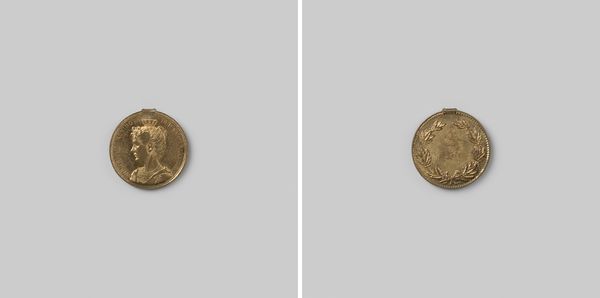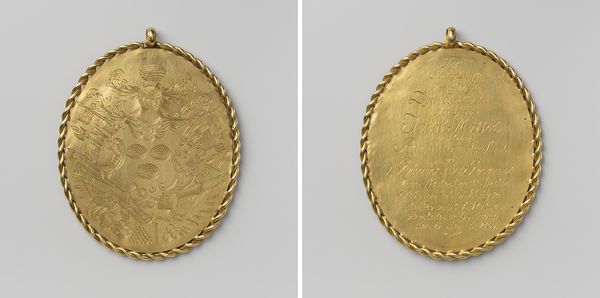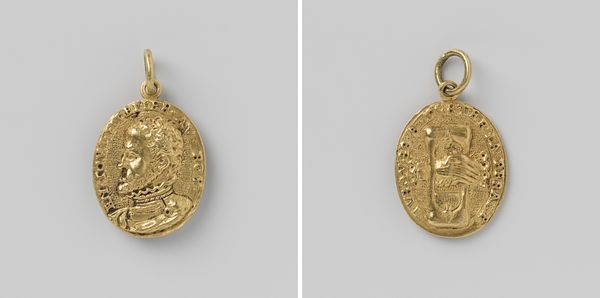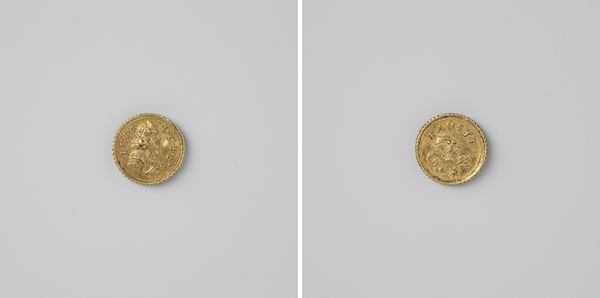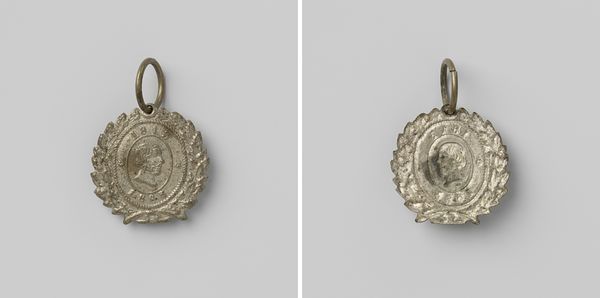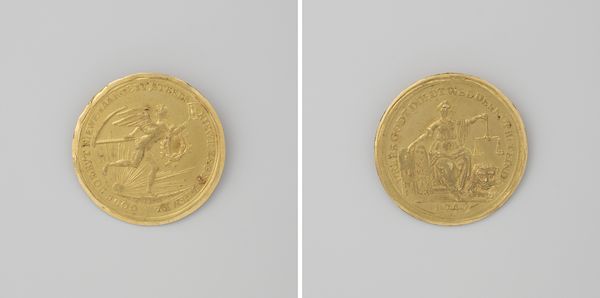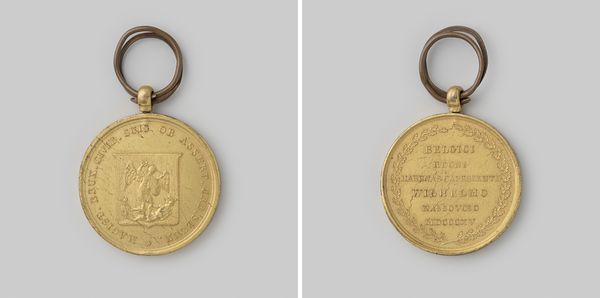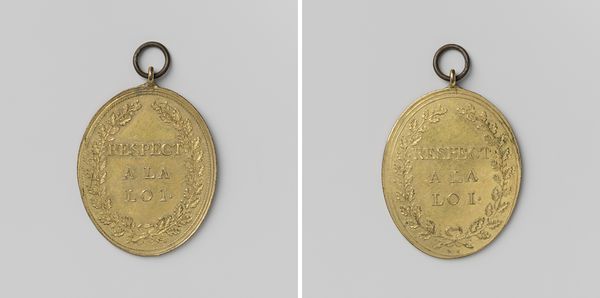
metal, relief, bronze, sculpture, pendant
#
portrait
#
medal
#
neoclacissism
#
metal
#
relief
#
appropriation
#
bronze
#
sculpture
#
romanticism
#
history-painting
#
coin
#
pendant
Dimensions: diameter 1.3 cm, diameter 0.9 cm, diameter 0.7 cm, weight 0.64 gr
Copyright: Rijks Museum: Open Domain
This small gold medal commemorating the Duke of Wellington and the Battle of Waterloo was likely made shortly after the event itself. Its miniature scale speaks to the tradition of commemorative medals, often made for distribution among a wide public. Consider the material: gold, a substance prized for its rarity, malleability, and resistance to corrosion. These qualities allowed the minter to strike a clean, detailed image of the Duke on one face, with a simple inscription, ‘Waterloo,’ on the other. The use of gold also elevates this object beyond mere souvenir. It transforms it into a symbol of enduring value and prestige. The making of this medal involved skilled die-cutting, striking, and finishing. These were processes that reflect the increasing mechanization of production in the early 19th century. The medal speaks to the intersection of artistry, industrial production, and the social context of its time, showing how an object can encapsulate complex historical narratives in a tangible form.
Comments
No comments
Be the first to comment and join the conversation on the ultimate creative platform.
